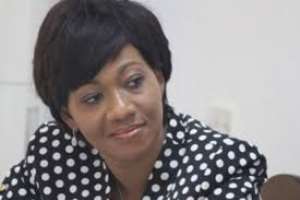
I commend the Institute of Economic Affairs (IEA) for initiating the conduct of Presidential debates running up to general elections every (four) years in our homeland. What I have against the IEA is their policy of restricting participants of the all-important Presidential debates to Party leaders who have representation in Parliament. IEA has changed its own rules in the midst of the game by restricting participants of the debates to political parties with over five per cent of the notorious votes in 2012 election.
Effectively, the Peoples’ National Congress (PNC) and the Convention Peoples’ Party (CPP) who have representation in Parliament do not qualify to take part in the debates as the votes they secured at general and by-election respectively fall short of five per cent of the votes in 2012.
The controversial 2012 general elections that led to NPP taking their case to the law courts to challenge the accuracy of the general election results has now been the basis for changes in IEA’s policy direction pertaining to participants of the 2016 Presidential candidates’ debates. Would this move be akin to “the stone that the builders rejected? Aspiring Presidential Candidates must be allowed to take part in the Presidential debates in order that voters are able to decide on the best person to lead Ghana from 2017 to 2020.
Restricting participants according to their size of the previous general election results is far too harsh and undemocratic and this rule can at best deprive Ghanaians of the opportunity to hear from all participants in order to make informed decisions about the person capable of managing our country’s affairs into the next 4 (four) years i.e. 2017 to 2020.
Thus, for instance an NDC voter may decide to vote for Dr Papa Kwesi Nduom resulting from his performance at the Presidential candidates’ debates. In the United Kingdom general elections of 2012 Mr Nick Clegg, leader of Liberal Democratic Party took part in the leadership debate. He excelled at the debates and that was reflected in the general election results, thus, paving the way for Mr David Cameron the British Prime Minister choosing Mr Cleg as his deputy Prime Minister. This is what we must see or do in Ghana if seriously we intend to go forward into the middle income country that we can only dream of.
Taking part in such debates shall enable voters to choose the right man or woman to take the mantle of leadership. Denying other leaders from taking part in the debates is bound to be counter-productive in the long term; i.e. Ghanaians shall be deprived of the chance to determine who can best manage our affairs. As Ghanaians, we deserve some respects to elect capable, competent and incorruptible leaders to administer the affairs of our country that is in limbo at the moment.
Hardly does a day pass without incidents such as workers’ strikes; Trained Nurses awaiting posting to their stations to help the sick in hospitals; embezzlement of funds in government organisations; lack of machinery to sustain Korle Bu Teaching Hospital burns unit; unemployment and even importation of Guantanamo Bay reformed terrorists and stuff like these. Voters must be given the chance to listen to what every Presidential Candidates have in stock for us when IEA organisers throw critical questions at the candidates. This is the surest way to draw a line of “best fit” in a scatter graph of 100% population of Presidential Candidates. For the sake of illustration, we need to give EVERY POLITICAL PARTY LEADER IN 2016 Presidential debates.
Finally, it is vitally important for Ghana to change its direction in leadership and a sure way to do that is to follow the Ten Point Political Platform (call it manifesto if you would) of the of Progressive People’s Party (PPP) that seeks the opportunity to implement an agenda for change that is built on four strong pillars, namely, Stewardship, Education, Healthcare and creation of Jobs.
We will implement the Agenda using the spirit of inclusiveness that will enable us to use the best Ghanaians; full participation of women and the youth; and above all leadership that is incorruptible. By dealing with corruption, we can double government revenue, which we will use to pay for our transformational initiatives in education, health care and job creation.
Kit Yawson, London




 Election 2024: Retrieve all guns from civilians – GUM to govt
Election 2024: Retrieve all guns from civilians – GUM to govt
 Collapse of Zamboree school building: 20 pupils narrowly escape death at Assin N...
Collapse of Zamboree school building: 20 pupils narrowly escape death at Assin N...
 “Don’t take the country’s peace for granted” – Asantehene caution Ghanaians
“Don’t take the country’s peace for granted” – Asantehene caution Ghanaians
 Cedi can only stabilise temporarily — Prof Bokpin
Cedi can only stabilise temporarily — Prof Bokpin
 Calling for emergency sitting needless — Minority to Speaker Bagbin
Calling for emergency sitting needless — Minority to Speaker Bagbin
 We've made massive investments in technology-driven education – Akufo-Addo
We've made massive investments in technology-driven education – Akufo-Addo
 Lack of requisite investments in African FinTechs hindering the goal of a digiti...
Lack of requisite investments in African FinTechs hindering the goal of a digiti...
 For Africa to develop, we must all coalesce around an "African agenda" — Dr Amin...
For Africa to develop, we must all coalesce around an "African agenda" — Dr Amin...
 NPP will win 2024 election with a strategy NDC won’t understand – Sammi Awuku
NPP will win 2024 election with a strategy NDC won’t understand – Sammi Awuku
 Dialysis patients in Ghana lament as treatment costs soar from GHS380 to GHS 491
Dialysis patients in Ghana lament as treatment costs soar from GHS380 to GHS 491
